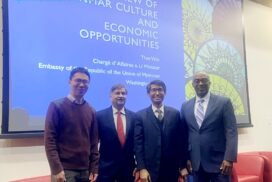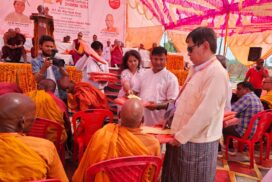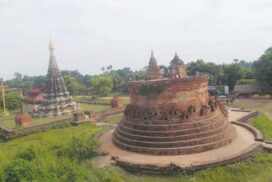Throughout its extensive history, the people of Myanmar have meticulously safeguarded their unique national culture, comprising linguistic diversity, elevated cultural customs, and intricate fine arts that reflect a sense of national pride and integrity. This commitment to cultural preservation is evident in historical and literary records and in the contemporary histories of neighbouring nations.
Recognizing the significance of tangible and intangible cultural heritages, every citizen of Myanmar bears the responsibility of preserving these assets as a national duty. These heritages serve as a testament to Myanmar’s cultural standards, which have evolved over thousands of years. Notably, the ancient city-states of Hanlin, Beikthanoe, Sri Ksetra, and the Bagan cultural zone have achieved global recognition as world heritage sites. Ongoing efforts are also directed towards securing world heritage status for the MraukU cultural heritage area.
Laws protect 48 ancient cultural heritage sites across the nation, with special emphasis on effectively safeguarding tangible and intangible monuments, artefacts, and areas housing multiple cultural treasures. To further promote cultural awareness and understanding, the government is actively working on enacting the Myanmar Museums Law, paving the way for establishing and enhancing museums that play a crucial role in educating future generations about the nation’s history, culture, and cultural standards.
Given Myanmar’s diverse ethnic landscape, many an intangible cultural heritage exists, encompassing ethnic languages, stories, traditional crafts, customs, and fine arts. A comprehensive inventory identifies 2,289 intangible cultural heritages spread across various regions and states.
In support of the flourishing of traditional culture, the government has organized the Myanmar Traditional Cultural Performing Arts Competitions 24 times, aiming to nurture talented artists capable of preserving the country’s cultural fine arts for posterity.
The present moment demands a united effort from all Myanmar citizens to safeguard valuable and rare cultural heritages for sustained existence. It is imperative that, based on these tangible and intangible cultural assets, citizens contribute to the building of a modern and developed nation without compromising their own national culture and strength.
Failure to do so could result in the encroachment of alien cultures on the sovereignty and cultural immunity of the people. Hence, collective striving is essential to cultivate a society rich in its own national culture of the country, capable of standing tall among other nations.
Preserve Myanmar’s rich cultural heritage: A collective national duty
- December 15, 2023
- 238















